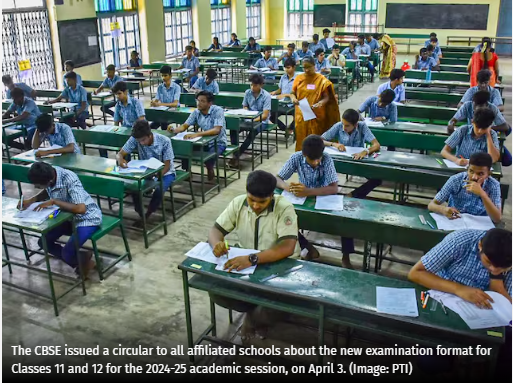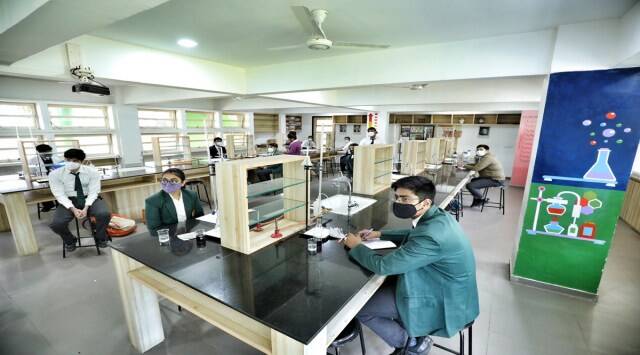
Apr 08, 2023
Draft curriculum doc proposes 5.5-day school week, longer periods Class 9 onwards, no assemblies on Saturdays
The previous National Curriculum Framework (NCF) released in 2005 gave schools more leeway in timetabling the school day and academic year. It only insisted that the school day be at least six hours and class time at least 45 minutes. By contrast the new draft NCF provides schools with a specific framework, suggesting the academic year should be 180 school days or 34 weeks across all stages of education.
The draft National Curriculum Framework (NCF) suggests that students should attend school for five and a half days a week, with Saturdays as a half-day of study. This amounts to 29 hours of instruction time per week. The framework also recommends that class periods should be 40 minutes for preparatory and middle school stages, and 50 minutes for Class 9 onwards.
The previous NCF, as released in 2005, gave schools more leeway in timetabling the school day and academic year. It only insisted that the school day be at least six hours and class time at least 45 minutes. By contrast, the new draft NCF provides a specific framework for the school day and academic year. The document, which is now open for comments from the public, suggests the academic year should consist of 180 school days or 34 weeks across all stages of education.
Here’s what an average day in school would look like if the recommendations of the draft NCF were to be implemented:
Preparatory and Middle stages
At the Preparatory and Middle stages, all weekdays are to begin with an assembly for 25 minutes. Each period is to last for 40 minutes. Some subjects will require a block period- class time is then extended to 80 minutes. The transition time for students to prepare for the next class is 5 minutes. A 15 minute snack break and 45 minute lunch break are built into the timetable. On Saturdays, there are no assemblies and lunch is 30 minutes.
Secondary Stage
Class 9 onwards, the weekday will also begin with a 25 minute assembly. Class time is however 50 minutes; block periods are hence 100 minutes. The transition time for students to prepare for the next class is 5 minutes. No time has been allocated for a snack break, but lunch has been extended to 55 minutes. On Saturdays, there are no assemblies and lunch is 30 minutes. The school day has also been extended to account for an ‘Additional Enrichment Period’ every evening. This is for students to use as additional time for enrichment in any subject on the curriculum.
When asked why the new document is more specific in its suggestions than the 2005 one, “One of the criticisms of the old NCF is that it was too broad and general which made it difficult for states and teachers to adopt. We wanted the new NCF to work as a ready reckoner for teachers so that they adopt examples and practice directly from the document as opposed to trying to interpret board principles.”
The NCF also forms the basis of changes that will be brought about in school textbooks and will influence the pattern of teaching and assessment in classrooms.
the draft NCF has also suggested that board examinations be held twice a year, a semester system for Class 12, and that students should be free to pursue a mix of science and humanities in order to reduce the rigid boundaries separating arts, commerce and science in classes 11 and 12 of all school boards.
Recent News

NTA COMPILATION JUNE 2024
Posted 9 months ago

CBSE Changes Year-end Exam Format for Classes 11, 12; Weight...
Posted 11 months ago

Faculty of Law, Delhi University introduces five-year integr...
Posted 1 year ago

NCERT drops periodic table chapter from Class 10 science tex...
Posted 1 year ago

Now, humanities students can pursue BTech in CSE
Posted 1 year ago
